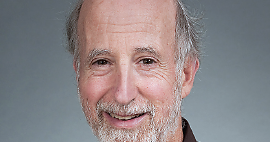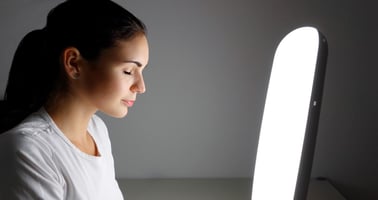Primary care patients with bipolar disorder enrolled in an integrated care system in Washington...
Asenapine Found to Be Safe, Effective in Youth With Manic or Mixed Episode of Bipolar I Disorder
 |
Robert Findling, M.D. (pictured left), the director of the Division of Child and Adolescent Psychiatry at Johns Hopkins University School of Medicine, and colleagues randomly assigned 403 youth (aged 10 to 17) displaying manic or mixed episodes of bipolar I disorder to receive placebo or asenapine (2.5 mg, 5 mg, or 10 mg) twice daily for three weeks.
The researchers found that all three doses of asenapine led to statistically significant improvements in Young-Mania Rating Scale (YMRS) scores and Clinical Global Impression scale for use in Bipolar Illness (CGI-BP) from days 4 and 7 onward. By day 21, a positive drug response (greater than 50% reduction in YMRS scores from baseline) was achieved by 42% to 54% of those taking asenapine compared with 28% among youth taking placebo. There were no significant differences in YMRS total score between the asenapine groups versus the placebo group in patients with and without attention-deficit/hyperactivity disorder, with and without concomitant stimulant use, or with respect to age and gender.
The incidence of clinically significant weight gain at 21 days was statistically significant versus that of placebo in all three asenapine groups (asenapine range 8.0%–12.0% versus placebo 1.1%). Mean changes from baseline in lipid parameters, glucose, and fasting insulin were also greater in patients treated with asenapine compared with those who took placebo. Other treatment-emergent adverse events reported by patients taking asenapine included somnolence, sedation, increased appetite, and numbness and tingling of the mouth.
“These results suggest the potential for substantial long-term metabolic changes in pediatric patients treated with asenapine. Because of the known metabolic side effects that occur in children and adolescents prescribed atypical antipsychotics, baseline and period monitoring of metabolic parameters including BMI, lipids, and glucose levels is recommended,” Findling and colleagues wrote.
To read more about pharmacological treatment of pediatric bipolar disorder, see the Psychiatric News article “Experts Make Strong Case for Lithium in Youth With Bipolar Disorder.”
(Photo Courtesy of Johns Hopkins University SOM)





